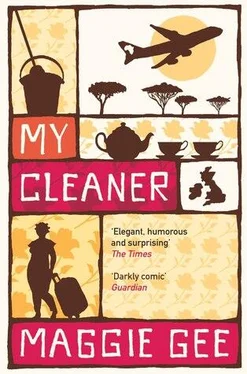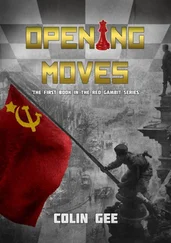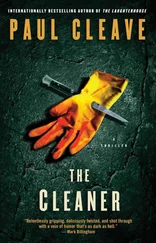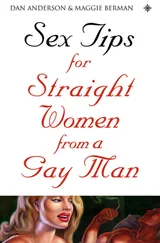And then perhaps I raised my voice a little, and said to her, “Don’t tell me about my husband!” Which is embarrassing, in retrospect.
Because Trevor turned on me. Men do. They feel no loyalty to women. He said, in that quiet voice he uses when he’s cross, “I have not been your husband for twenty years. And Mary has a point, actually.”
So then I felt entirely alone. It was weak of me, but I wanted to cry, because they had all behaved so badly, but instead I closed the kitchen door rather firmly and went into my study to work.
I sat for two hours, staring at my laptop. This is my house, but I felt like a prisoner, afraid to set foot outside this room in case they were lurking there, smoking and laughing.
It is Mary’s fault. She has been here too long. And I am paying her a fortune. I have been too soft, she is taking advantage.
At first I went back to my novel again. It seemed so feeble, untrue and unhelpful. I did not feel it was connected to me.
Then something odd happened, one of those weird glitches the brain comes up with when one’s over-stressed.
My novel had a heroine called Emily who was leaving home to go to university. Somehow I slipped into the first person, and I found I was writing about the village. The things I was writing were all about me. The fear and the excitement, the loneliness of leaving (I suppose all these quarrels must have left me feeling lonely).
And so I slipped back, for a moment, into childhood. The sounds I remember from the village. The wind in the cornfields. The tractor straining. The ominous bees by the buddleia. The chickens’ fretful squawks from the hen-house. My mother’s sheets snapping on the line, when she wasn’t ill, when I was little. My mother calling me in from the garden. And I forgot about Emily; and for a moment, I was perfectly happy, even though, when I had finished, my mind circled back to Mary.
Mary Tendo
£1,270. I am ahead of schedule, because of my new wages, which I negotiated, like a lawyer (and to be fair, Miss Henman tried to be generous). There are still many weeks left before Christmas, so I could go back with three thousand pounds! Which is nine million Ugandan shillings.
And yet, this morning, I just feel afraid. I have not seen Miss Henman since she was so angry. I think she is jealous that Justin likes me. She shouted from the window as if she was drunk.
I find myself thinking, buy presents for Jamil. And I tell myself, do not do this again, but I find I am going out of the house, with all my clothes on, and my thin orange coat, and seventy pounds tucked in my purse, and I try to stop myself, but I cannot. It always happens when I am not happy. I must not let myself be unhappy. Compared to the great unhappiness, nothing matters, everything is light. Yet the small unhappinesses scratch at my soul.
I do not like these arguments. In Kampala, I never argue, or only with my friend the accountant, and then we kiss and make up straight away. And twice with Omar, on the phone. For Omar does not like to phone me, and phoning from Libya is sometimes hard. It was nearly two weeks before he phoned to tell me the bad news about Jamie. Why didn’t Omar ring when Jamie first ran away? I cursed my husband, and then I was sorry. And yet I still blame him. I cannot help it. My son has become a stone in my heart.
Every day of my life, I think about Jamie.
Kampala is a place of many rumours. Perhaps the pain is too great, and you speak. A small whisper, a hiss of hurt. A week later, the rumour returns, like a wreath of snakes around your shoulders.
I know Miss Henman will send me away. Last night when we were smoking she was very angry, and I was afraid she would dock my money. But this only makes me more eager to spend it. Jamie, Jamie, something for Jamie.
Because I am afraid of ending up with nothing. And the British will keep all the things that they have, their houses, their gardens, their lawns and roses, their cupboards full of fine shirts and blouses, the ruby-red walls of wine in the beer shops, their pictures, their books, their colleges, the way they speak English as if they are princes, as if it is the only way to speak English, and the bus conductors do not understand me, but say ‘What?’ or ‘Sorry?’ as if I am a fool — which makes me afraid my language is nothing, although Ugandans speak excellent English, and write it too, like Moses Isegawa, our novelist who writes beautiful books, but here I have met no one who has heard of him.
They will send me away, and keep it all. Their squares of white buildings as big as a whole village, where water bursts up and wastes in the sun, their tame stone lions, so proud and calm, whereas ours eat goats, and fishermen, their supermarket palaces, heavy with food, twenty sorts of coffee, thirty sorts of bread, long fridges like fishing boats groaning with fish, thousands of fat-cheeked, featherless, chickens as bald and blank as bazungu faces, apples from Cape Town, beans from Kenya, all the best food in Africa—
They will keep the fruit, and give me a stone. And I will have crossed the world for nothing.
Because when we were in the garden last night, and the Henman was so angry, and shouted from the window, I saw that Justin was sorry for her. I saw that if there were a really bad argument, he would forget me, and side with her. Because in his heart, of course, he loves her. It is always the same with a son and his mother.
Jamie, Jamil. He loved his mother. He liked to press his cheek against mine, even later, when he developed stubble, when he was living with his father. Even when his father had the new wife, even when Omar cooled to me. And this is the thing that makes me wince and frown as I press into the chill of the UK winter. Did Omar grow cold towards our son, as well? He became too ready to think badly of him, too ready to think he was corrupted by others. Was it because the new wife had a new baby? Did Jamie leave because he didn’t feel wanted? Did he know how much his mother loved him?
And yet in the end I could not protect him. Love’s not enough. It is strong — so strong. My heart could tear its way out of my chest. It could beat so hard that my life would end. It is strong, and yet it has no power. It cannot bring him back to me.
I last saw Jamie two years ago. His father gave him money for the flights to Entebbe. I was there to meet him, with Charles, and the car. When I saw Jamie coming I ran to hug him. He was still narrow-bodied, as sixteen-year-olds are, and he walked out alone, with his untidy baggage, and I felt there was only me, in all the world, to help him, and I hugged him so hard my arms became numb. We were talking so fast that Jamie didn’t hear when I introduced him to my friend the accountant, who sat in the car, waiting for us, but I didn’t realise till we got to my flat and he said, “Mummy, you must pay the driver.” He thought that Charles was a taxi driver! And when he understood, he looked upset, and afterwards Charles said he thought he was sulky. But I said, “Charles, you must understand. Young men feel shy when their mothers have boyfriends.” And we were careful, but not careful enough, because Jamie knew that Charles was my kabito when he caught us kissing in the kitchen. Perhaps he told Omar I was a whore. I do not think so. Jamie was kind (I could not stop him giving money to the beggars). And yet his parents stopped loving each other. He knew that both of us loved other people. Did Jamie think that we loved him less? Did I make him unhappy, in Kampala?
The wind in October is horribly cold. It is thin and sharp and it makes me lonely. It screams and howls as the Henman does. I do not want to hear what it says. I miss the friends that I have at home. Even if they gossip, at least they know me. I miss the strong chai that we drink together, Beverley from the flat above and Ruth next door with her new small dreads like stubby, soft little heads of puppies. I miss the faces I saw every day, old Mr Lugira with the weighing machine his son brought back from America, standing smiling by the side of the road, and often he would weigh me for free. And Karim Hussein, my friend at the bank, who always treats me like a lady. And my other friends in the street where I live, and even the maids at the Nile Imperial, who are nice to me, for whatever reason. The youngest, Benedicta, was like a daughter. I miss my home. I miss Kampala.
Читать дальше












